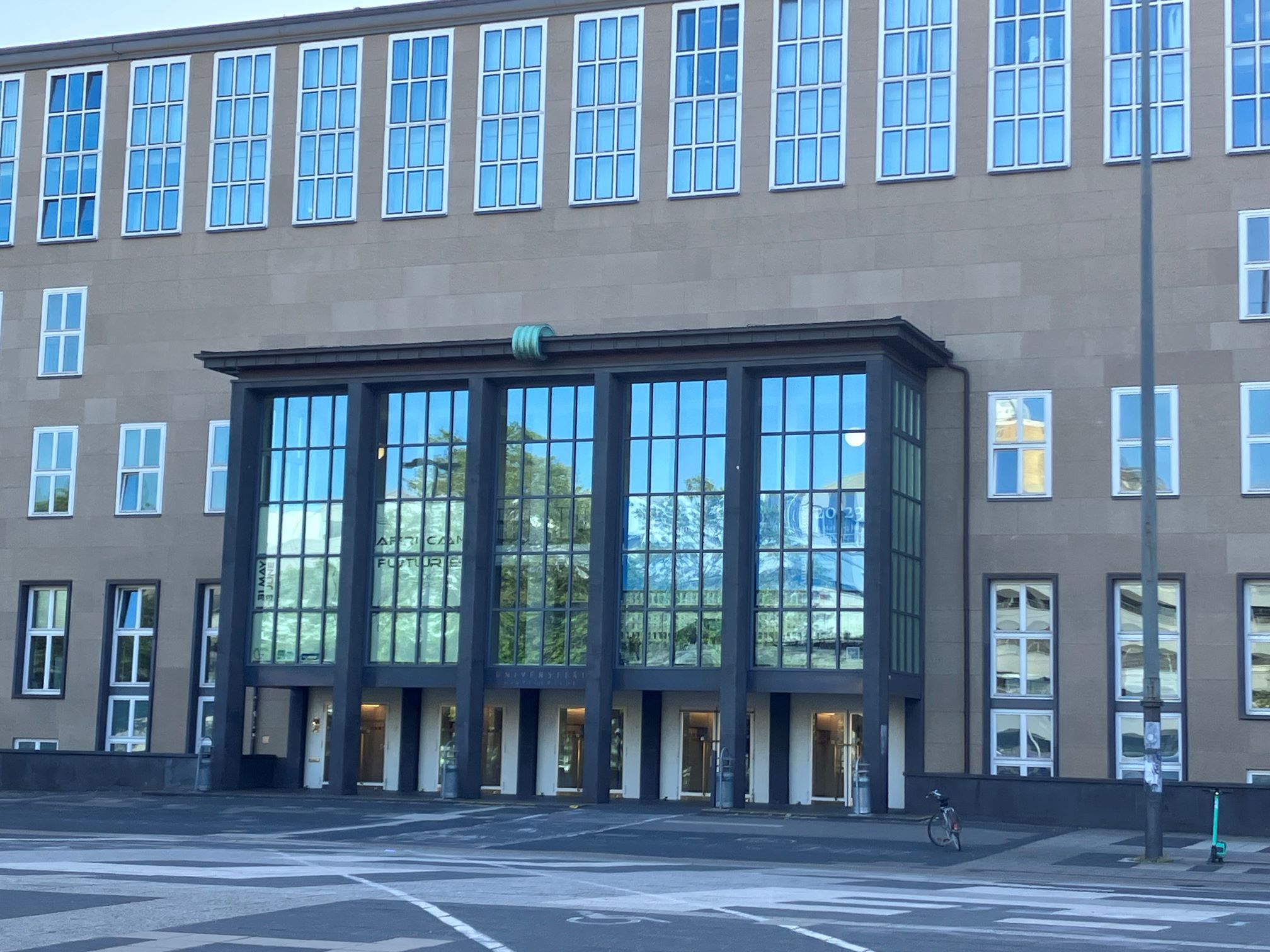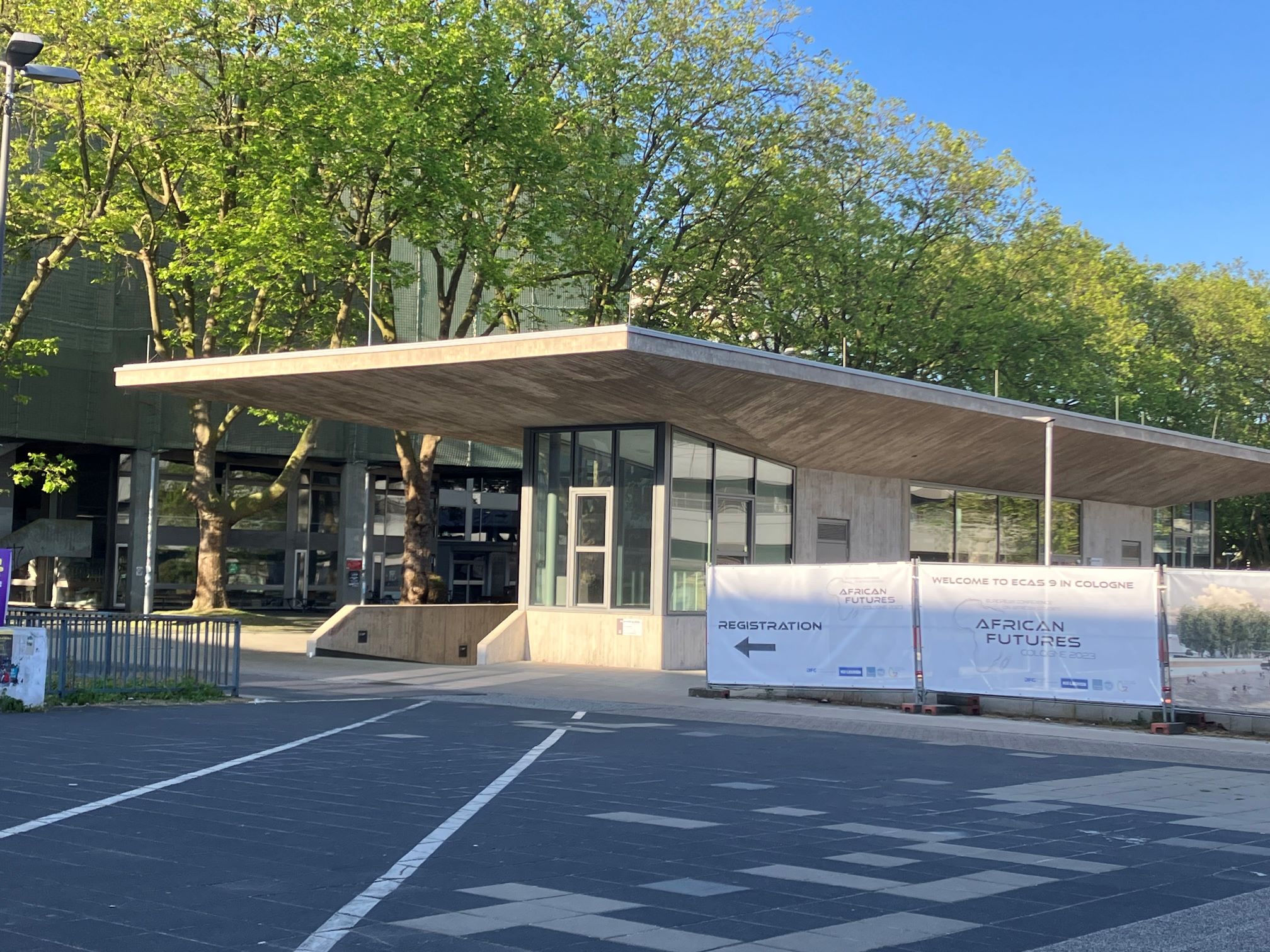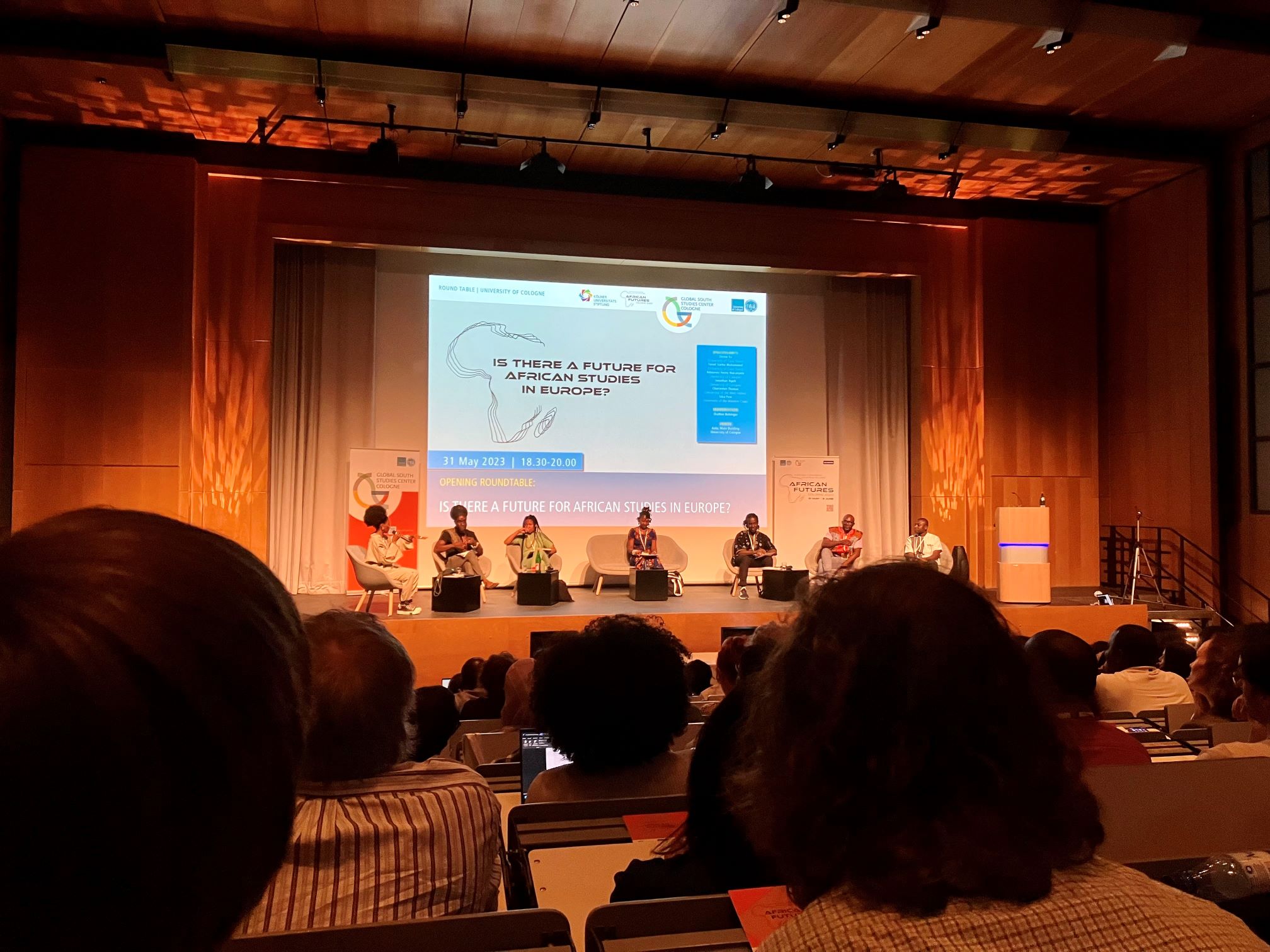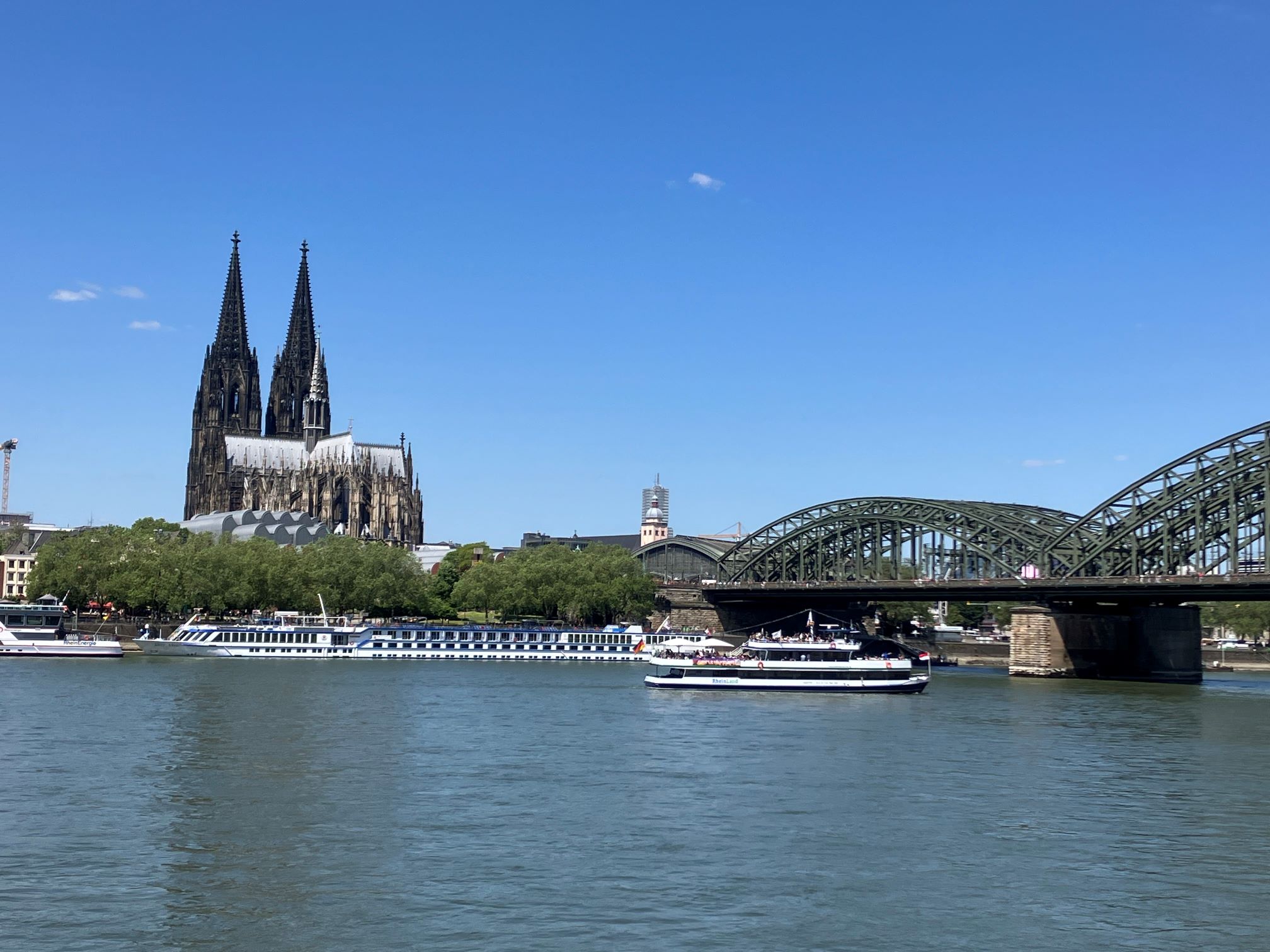Report on the Dispatch to Germany: Participation and Presentation at African Futures 2023
Specially Appointed Research Fellow
The Center for African Area Studies
Kyoto University
Yuriko Sugiyama
From May 29 to June 10, 2023, I visited the Global South Studies Center, University of Cologne (Photo 1) to participate in the African Futures 2023 held at the university and present my research. The conference started as part of the preparations for the ninth European Conference on African Studies (ECAS), jointly organized by the University of Cologne’s Global South Studies Center (GSSC) and the Catholic University of Leuven’s Institute for Anthropological Research in Africa (IARA), and due to be held in Cologne in June 2021 but the pandemic development to a postponement to 2023. 1900 delegates from 80 countries came together at the conference. It was a conference filled with great enthusiasm.


“African Futures” aimed to explore the continent’s critical engagements with the past, present, and future of Africa’s global entanglements. I participated in a panel titled “Family Memory and African Futures,” where the following eight people gave presentations.
・Exploring African Family History, Memory Practices and Visions of the Future
・Founders, architects, and mothers: Remembering family history in Southern Ghana
・Marriage and sexuality in Dagara family recollections; Colonial and Christian moral visions in African futures
・American at birth, but Ghanaian by choice: The Ambivalent Belonging of American ‘Jackpot Babies’ in Ghana
・Evocative Bonds: A Relocation Policy and the San in Botswana (Yuriko Sugiyama)
・The Return of Husbands: Of Male Labour Returnees and Women in Botswana, c.1970 to the present.
・Children of war and peace: Family memories and heritagisation in post-conflict African futures
・Holding the Past in Our Hands: Personal Archives, Family Memories and African Historical Futures
In Africa, extended family ties continue to enjoy importance in providing mobile individuals with a sense of belonging. By emphasizing the supposed naturalness of belonging through descent and marriage, members of families living apart in an increasingly globalized postcolonial world hope to stem the tide of dispersal and professional diversification among members. The panel explored family practices of remembering and how they shape the family members’ visions of possible and desirable futures. Due to the large number of presenters, the panel presentations were divided into morning and afternoon sessions, but the room was packed throughout the day, indicating that “memory” and “family” are topics of interest to many participants in Africa today.
I presented the presentation “Evocative Bonds: A Relocation Policy and the San in Botswana”. In the context of political trends, hunter-gatherer societies themselves are reconstructing their past (memories of being a minority) and making their future (bonds made with a sense of we-ness that reflects their identities). In the presentation, I referred to a trial on burial in Botswana, which has attracted international attention in recent years. I received many questions and comments. Through the panel, we discussed what “family” means in Africa today and the way of memory practices, those topics that I myself have been asking myself, which made for a very productive panel presentation. In addition, various ceremonies were held during “African Futures 2023”. One of them was a roundtable entitled “Is There a Future for African Studies in Europe?”. I was stimulated by the way researchers of the same generation as I discussed with each other in front of an audience of more than 1,000 people (Photo 2). They were African researchers conducting African studies in Europe, and the way they were struggling with visa and financial problems and finding meaning in researching their own country in a foreign country, overlapped with African students belonging to the Kyoto University Graduate School of Asian and African Area Studies, to which I belong.

Moreover, there were other presentations on Botswana in the “African Futures 2023”. A faculty member affiliated with the Okavango Research Center of the University of Botswana gave a presentation on environmental conservation and transboundary wildlife protection in the Okavango Delta. Two presentations were interesting to me. One was by a student (Diana) from the Botswana University of Agriculture and Natural Resource, who analyzed people’s historical perspectives on gardening in Southern Africa and discussed the socio-cultural significance of gardening. The second presentation was by Sechele, a researcher from the University of Botswana who is currently affiliated with University of the Free State, who examined the social changes that occur when husbands return home after migrating to Botswana, and analyzed how the absence and return of husbands have affected Botswana communities and women in a patriarchal society. Both of them are female researchers of the same age as me. It was very meaningful for me to meet them. I pledged to work harder in my research activities and to return to this conference to present my research.

